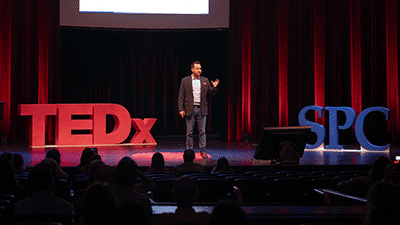What is Cloud Engineering? And What Does a Cloud Engineer Do?
SPC Marketing | 2/6/2025
Embarking on a career as a cloud engineer opens the door to one of the most dynamic and quickly evolving fields in technology.
In this blog post, we dive into what cloud engineering is, the daily responsibilities of a cloud engineer and the skills you'll need to succeed. You'll also learn about salary expectations, essential qualifications and answers to common questions about this in-demand profession.
What Is Cloud Engineering?
Cloud engineering is a field dedicated to designing, building and maintaining cloud-based systems and infrastructure to solve business challenges and improve efficiency. Together, those main objectives lead to a reliable network of remote technology that supports easy data access, scalability and better collaboration, helping businesses innovate faster, cut costs, and stay secure and compliant.
Design
This stage is crucial for ensuring that the cloud infrastructure is not only scalable and secure but also efficient. Cloud engineers assess the unique needs of the organization — such as data storage, security requirements and data processing abilities — to create a comprehensive blueprint.
Build
Once the design is established, it’s time for the build phase. This involves setting up virtual machines, storage solutions and networking components in accordance with the design specifications. During this phase, cloud engineers write and deploy automation code, manage cloud resources and integrate services to create a functional cloud system.
Maintain
The maintenance phase is an ongoing process that ensures the performance and security of cloud systems stay up-to-date. Cloud engineers are responsible for monitoring and managing the system, optimizing performance and addressing any issues that arise. Specifics often include updating software, scaling resources based on demand, troubleshooting problems and updating security measures to protect against the latest threats.
What Does a Cloud Engineer Do?
The role of cloud engineer comes with a wide range of responsibilities, all focused on designing, deploying and managing cloud-based systems. Here's a breakdown of some of the key tasks and collaborations that contribute to seamless operations.
Cloud Engineer Responsibilities
Job responsibilities can vary by organization, but typically include:
- Specialized cloud architecture and design. Cloud engineers design custom solutions that meet a business's needs, ensuring the infrastructure can grow, keep data secure and handle daily operations.
- Deploy and maintain infrastructure. Cloud engineers create and manage the cloud infrastructure, from configuring virtual machines and setting up storage, to managing network components and ensuring systems run smoothly.
- Optimization. Cloud engineers constantly refine systems by finding ways to use resources more efficiently, ensuring optimal performance while reducing costs.
- Security and compliance. Cloud engineers focus on securing cloud systems and meeting industry regulations by applying security measures and monitoring for threats.
- Troubleshooting. When issues arise, cloud engineers diagnose and resolve them with minimal disruption to cloud services.
Cloud Engineer Projects and Tasks
The role often involves a variety of projects, including:
- Migration to a new cloud system. Transitioning an organization’s data, applications and services into a cloud environment
- Optimizing existing infrastructure. Enhancing the performance, security and efficiency of existing cloud systems
- Recovery efforts. Ensuring that backup and recovery plans are in place to protect critical data and systems in the event of a failure or breach
Cloud Engineer Collaborations
Partnering with other IT professionals is common, including roles such as:
- System administrators to manage and maintain server operations
- DevOps to streamline development and operational processes using cloud technologies
- Security analysts to monitor and protect cloud networks from potential threats
A Day in The Life: Cloud Engineering
The following is a fictional, yet realistic example of a day in the life of a cloud engineer, complete with diverse tasks and collaborations involved in managing cloud infrastructure and supporting client needs.
7:30 a.m. – Morning routine and daily review
A cloud engineer’s morning routine often includes checking emails and reviewing the daily agenda. This is a crucial time to catch up on any overnight updates, prioritize tasks and ensure any urgent issues from the previous day are addressed.
8 a.m. – Team stand-up meeting
The cloud engineering team gathers for a quick stand-up meeting — a 15-minute session that enables each team member to share their current projects, any roadblocks they’re facing and what they plan to accomplish today. Today, the lead engineer discusses progress on a migration project for a client moving their applications to the cloud, while another engineer highlights challenges faced in optimizing cloud storage costs.
8:15 a.m. – Project work
Following the stand-up, the engineer dives into hands-on work. A cloud migration project for a retail client involves reviewing the architecture design, setting up virtual machines and configuring security protocols. The engineer must run a series of tests this morning to ensure that the application is running as expected in the new environment.
10:30 a.m. – Client meeting
The engineer joins a video conference call with the retail client to provide an update on the migration progress. The meeting lasts about an hour, during which they discuss project milestones, any potential risks and next steps.
11:30 a.m. – Documentation and reporting
The next hour is spent documenting the migration process and creating a report to share with stakeholders — outlining the steps taken, any challenges encountered and the solutions implemented. Clear documentation is crucial for future reference and helps maintain transparency with clients.
12:30 p.m. – Lunch
It’s time for a well-deserved lunch break. Cloud engineers often use this time to unwind, or catch up with colleagues.
1 p.m. – Project work
Back from lunch, the engineer dedicates the next two hours to developing automation scripts for deploying cloud resources. This goal is to streamline the process, reducing the time spent on manual tasks and minimizing the risk of errors. The engineer uses tools such as Terraform and Ansible to build and test these scripts.
3 p.m. – Security review meeting
During this hour-long meeting, the team evaluates recent security incidents, reviews current practices and discusses enhancements to security protocols for their cloud environments. Today, they explore implementing multi-factor authentication for all users accessing cloud resources.
4 p.m. – Performance monitoring and optimization
After the meeting, the engineer spends the last hour of the work day monitoring the performance of cloud applications. They analyze logs and identify potential bottlenecks as a proactive approach to keeping applications responsive and reliable for users.
5 p.m. – Wrap-up
Before signing off, the engineer reviews what was accomplished and updates their task list for the following day. They may also check in with team members to ensure alignment on ongoing projects. This reflection time is vital for maintaining focus and productivity.
How Much Do Cloud Engineers Make?
The average salary for a cloud engineer at time of publication is $128,687. Factors such as experience, education, location and company size can impact that figure, with the low end of the scale reported around $85,549 and the higher end just under $193,578.
Experts say that cloud computing, security and architecture are among the most in-demand skills in today’s job market, meaning there are plenty of compelling opportunities available with the right skillset.
Some nearby Florida organizations that value the work of cloud engineers are:
- Local governments, such as Pinellas County, who often rely on tech professionals to reduce IT infrastructure costs by leveraging cloud services instead of maintaining costly on-premises hardware.
- KnowBe4, a company focused on cybersecurity awareness training that needs a robust and secure cloud infrastructure. A cloud engineer can design and maintain secure cloud environments that protect sensitive data and ensure compliance with industry regulations.
- Geographic Solutions, dealing with large datasets related to job locations, populations and economic trends, counts on a cloud engineer to design and implement secure cloud storage solutions that can efficiently manage and access this data, ensuring it is organized and readily available for analysis.
- TD SYNNEX collaborates with many technology providers, requiring a cloud engineer to manage the integration of different cloud services and applications, for seamless interoperability.
Essential Cloud Engineering Skills and Qualifications
The demand for skilled cloud engineers is rapidly increasing, and to thrive in this dynamic field, aspiring cloud engineers need a mix of technical and soft skills, along with relevant qualifications.
Technical Skills for Cloud Engineers
- Mastery of cloud platforms such as Amazon Web Services (AWS), Microsoft Azure and Google Cloud Platform (GCP) is crucial. Cloud engineers should understand the full range of services offered by each, including how to deploy, configure and manage them appropriately.
- A strong grasp of networking concepts such as IP addressing, subnets, VPNs and load balancing is essential for designing and managing cloud architectures effectively.
- Familiarity with data scripting on programs such as Python, PowerShell or Bash to automate tasks, manage cloud resources and handle data workflows.
- An understanding of various operating systems, particularly Linux and Windows, to be able to navigate cloud environments and troubleshoot issues.
Soft Skills for Cloud Engineers
- Strong analytical and critical thinking skills to troubleshoot issues that arise in complex cloud environments.
- Working effectively with cross-functional teams, including developers, system administrators and security professionals, is essential.
- Strong project management skills help cloud engineers prioritize tasks, manage timelines and ensure that projects are completed efficiently.
Cloud Engineering Education
Formal education can provide a strong foundation for a career in cloud engineering. There are also many opportunities to earn certificates to validate skills and expand expertise in specific cloud platforms, tools and technologies.
For those interested in pursuing a career in cloud engineering, St. Petersburg College offers a range of relevant degrees and training programs. Explore these options further:
- Cloud Computing Technology Associate Degree: This program focuses on essential cloud technologies, architecture and best practices, providing students with hands-on experience in managing cloud services.
- Computer Information Technology: This degree offers a broad understanding of computer systems, programming and networking, equipping graduates with the skills needed for various IT roles.
- Cybersecurity: Security is a top priority in cloud environments, meaning a degree in cybersecurity helps engineers understand the intricacies of protecting data and applications in the cloud.
- Networking Technologies: This program emphasizes networking principles, protocols and security, providing valuable knowledge for managing networked cloud environments.
FAQs
What does a cloud engineer do?
Cloud engineers are responsible for designing, building and maintaining cloud-based systems that help businesses manage their data, applications and infrastructure. They work closely alongside colleagues in the tech field to ensure security, scalability and smooth operation of these important systems.
Do cloud engineers get paid well?
Yes, cloud engineers typically earn high salaries, with pay varying based on experience, location and specific job roles. The average salary for a cloud engineer at time of publication is $128,687.
Is cloud engineering a good career?
High demand, competitive salaries and ample growth opportunities contribute to cloud engineering being generally regarded as a great career. As more companies move to cloud-based systems, the need for skilled cloud engineers continues to rise.
Is cloud engineering hard?
Cloud engineering requires a mix of technical skills in areas such as networking, programming and security. It requires adequate training and experience but, with a solid foundation of skills, makes for a rewarding career.
How do I become a cloud engineer?
To become a cloud engineer, you usually need a background in computer science or IT, plus certifications in cloud platforms such as AWS, Microsoft Azure, or Google Cloud. It’s important to get hands-on experience through internships or entry-level IT jobs, too.
What industry certifications can cloud engineering students expect to achieve during the program?
Cloud Engineering students can expect to gain valuable industry certifications that align with the most in-demand skills in the field. As part of the program, students will have the opportunity to prepare for and earn certifications such as AWS Cloud Practitioner, Microsoft Azure AZ-900, CompTIA Cloud+ and CompTIA Network+
Make Strides Toward Your Dream Career
As you explore the world of cloud engineering, remember that every step you take brings you closer toward a rewarding career in this thriving field. With the right skills, certifications and a passion for technology, you're well on your way to making your mark.
Learn more about Cloud Computing Degrees and Certificates at St. Petersburg College.



